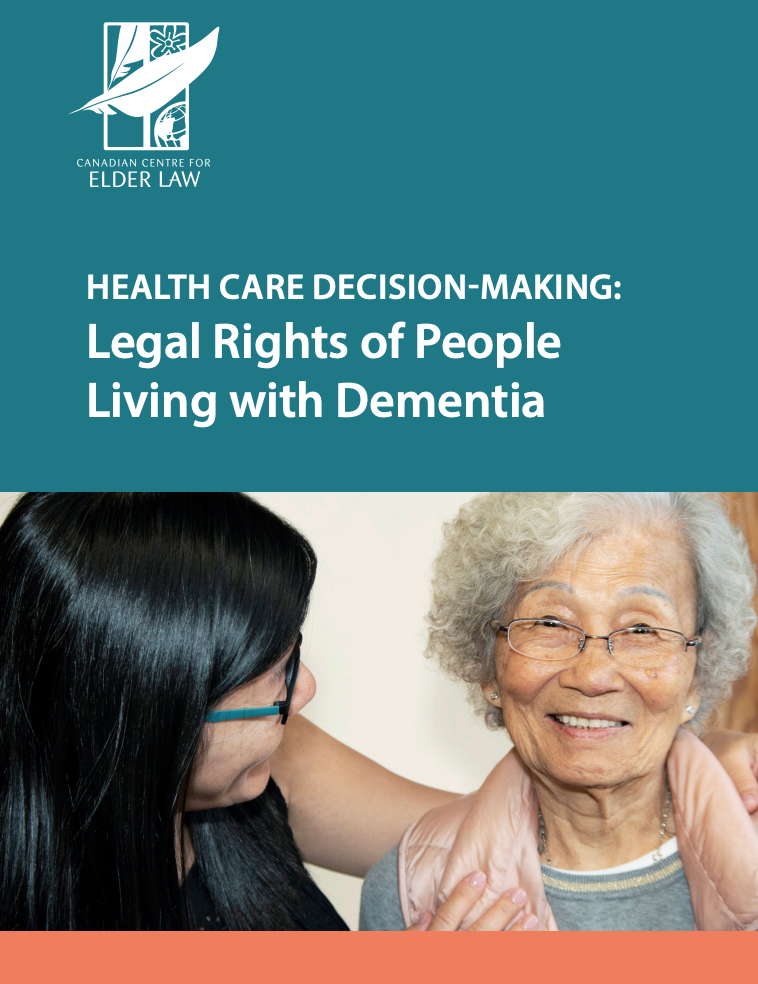Legal Information
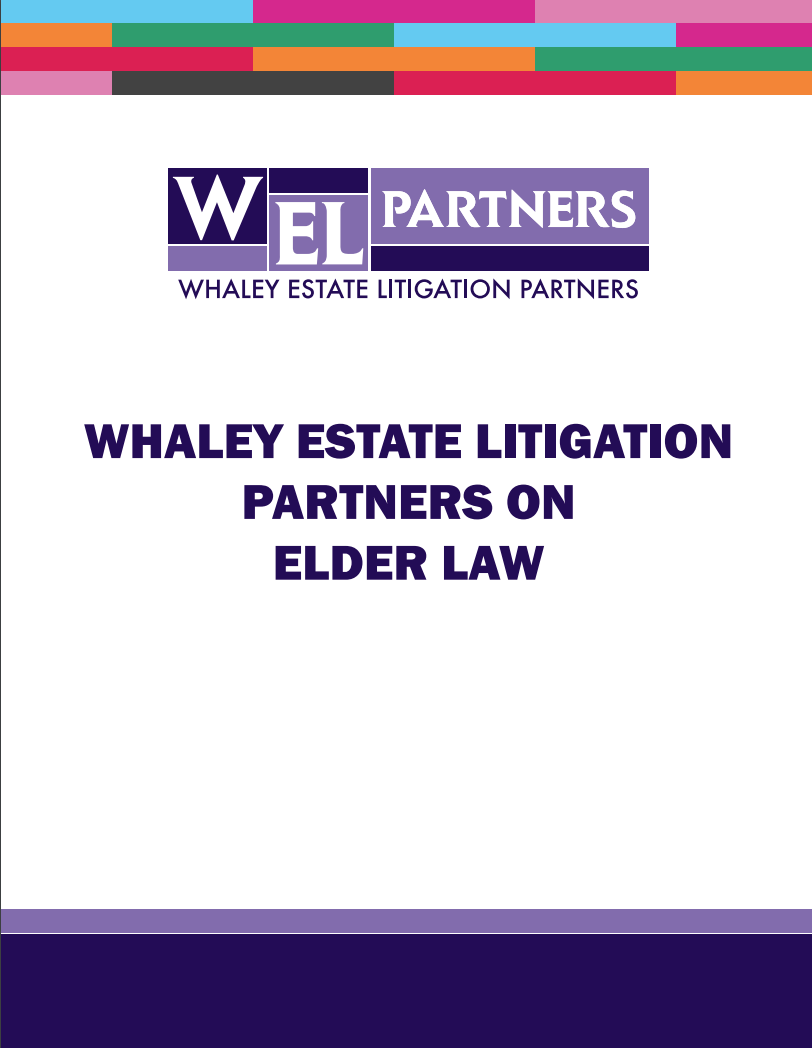 This book addresses matters of ''capacity, undue influence, powers of attorney, and guardianship, the book also addresses discrimination against older persons, predatory marriages, and other topics. Prominent among the topics discussed is elder abuse in its various forms, including financial and physical abuse, civil and criminal law remedies to counter abuse, and protection of the elderly. These are matters that need to be addressed, especially in light of horrendous breaches of care and abuse that have been reported in the press in recent years. As well, case law in areas such as predatory marriages, another form of elder abuse, have made it important to describe the vulnerability of the elders in such cases and others and to give guidance on how to prevent such abuses and predations. The book also covers end of life decisions and professionalism and ethics in dealing with vulnerable clients. The book concludes with a number of appendices that contain helpful checklists on elder abuse, undue influence, and capacity, as well as a summary of capacity criteria.''
This book addresses matters of ''capacity, undue influence, powers of attorney, and guardianship, the book also addresses discrimination against older persons, predatory marriages, and other topics. Prominent among the topics discussed is elder abuse in its various forms, including financial and physical abuse, civil and criminal law remedies to counter abuse, and protection of the elderly. These are matters that need to be addressed, especially in light of horrendous breaches of care and abuse that have been reported in the press in recent years. As well, case law in areas such as predatory marriages, another form of elder abuse, have made it important to describe the vulnerability of the elders in such cases and others and to give guidance on how to prevent such abuses and predations. The book also covers end of life decisions and professionalism and ethics in dealing with vulnerable clients. The book concludes with a number of appendices that contain helpful checklists on elder abuse, undue influence, and capacity, as well as a summary of capacity criteria.''
The following is part of our project “Increasing Access to Justice for Older Adult Victims of Sexual Assault: A Capacity Building Approach”, funded by the Justice Canada Victims Fund.Learn more about this project or consult the full list of resources
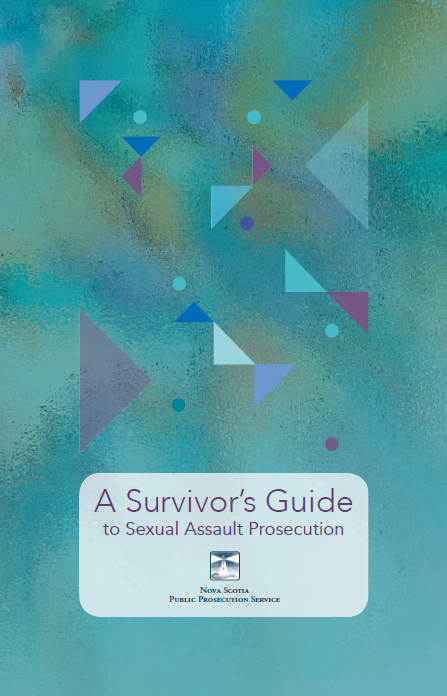 Nova Scotia’s Public Prosecution Service has produced what is believed to be the first plain language guide for sexual assault survivors in Canada.
Nova Scotia’s Public Prosecution Service has produced what is believed to be the first plain language guide for sexual assault survivors in Canada.
"You have made a difficult decision and reported to police that you were sexually assaulted. The police have investigated and they have charged the person or people they think are responsible. This publication will help guide you through the next steps." Content:
- Contact information
- What should you do next?
- Where is the person or people police have charged?
- How long will the whole court process take?
- Provincial Court or Supreme Court?
- Do you need your own lawyer?
- What will you have to pay for?
- How are you expected to participate in your case?
- Who will be in court?
- Will your name be in the news?
- A step-by-step guide to the prosecution process
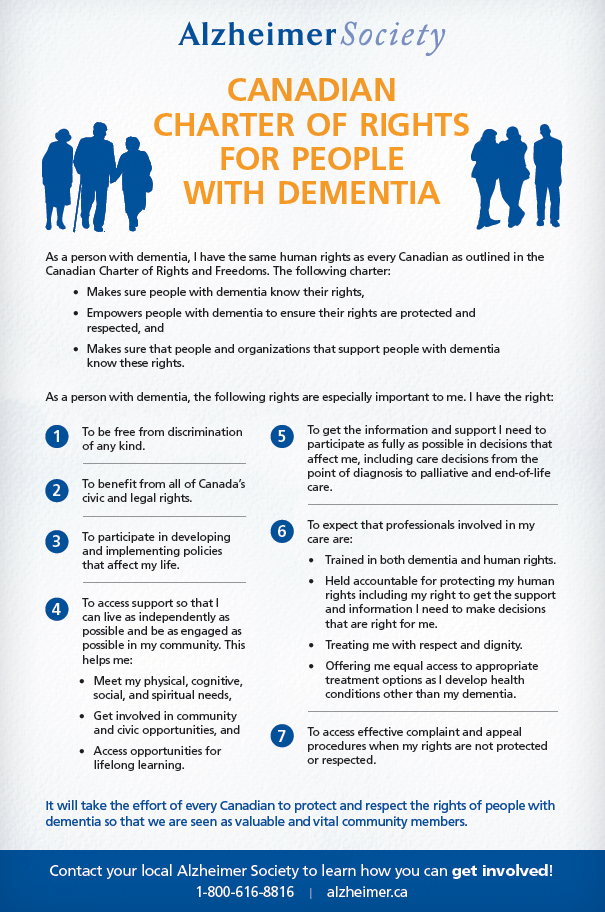
That’s why the Alzheimer Society of Canada is pleased to officially launch the first-ever Canadian Charter of Rights for People with Dementia. The landmark Charter is the culmination of over a year’s work by the Society’s Advisory Group of people with dementia, whose members represent different walks of life from across the country.''
Source: Alzheimer Society of Canada
The following is part of our project “Increasing Access to Justice for Older Adult Victims of Sexual Assault: A Capacity Building Approach”, funded by the Justice Canada Victims Fund.Learn more about this project or consult the full list of resources
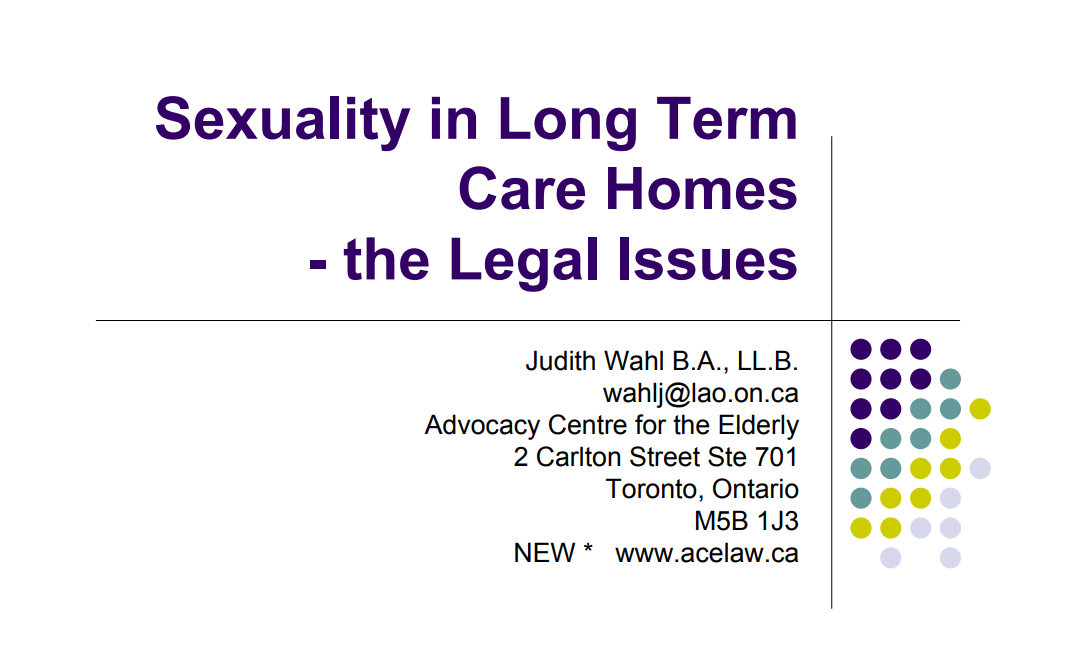
This presentation explores the legal issues related to sexuality of older people living in long term care, as well as key concepts such as sexual assault, sexual activity, consent and capacity, and duty of care.
Source: Advocacy Centre for the Elderly
Page 1 of 3


